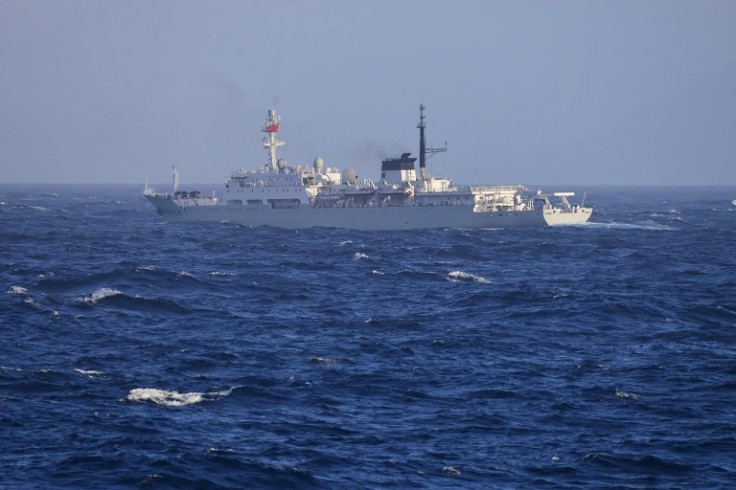Chinese Ships Intrude Into Japan's Territorial Waters Near Contested Islands
KEY POINTS
- Japanese Coast Guard said the intrusion happened off the uninhabited Senkaku Islands
- The contested Senkaku Islands were nationalized by Japan after buying them from private Japanese owners
- Japan is worried that China will invade the Senkaku Islands as part of its efforts to conquer Taiwan
Three Chinese coast guard vessels entered Japan's territorial waters near the contested Senkaku Islands on Wednesday, the 27th such intrusion this year and the first since Sept. 8. In addition to the three ships, reports said three other Chinese vessels, two of which appeared to be equipped with auto-cannons, were seen sailing in the zone.
The Japan Coast Guard said the intrusion happened off the uninhabited contested islets claimed by both China and Japan around 3:15 a.m. local time on Wednesday after Chinese ships tracked three Japanese fishing boats in the area, Tokyo-based news agency Kyodo News reported.
Following the intrusion, Japanese patrol vessels ordered the Chinese ships to immediately exit the waters, and Tokyo lodged a stern protest with Beijing.
Describing the intrusion by the Chinese ship as "extremely regrettable and totally unacceptable," Deputy Chief Cabinet Secretary Yoshihiko Isozaki told reporters at a press conference that Japan will continue to take a "cool and decisive" approach in dealing with China.
News of the intrusion that comes a day before both countries are set to mark the 50th anniversary of the normalization of bilateral diplomatic ties, raises concerns about China's hegemonic behavior in the region.
The Senkaku Islands, as they are called in Japan, is a long-running territorial dispute and has been at the root of flare-ups between Japan and China for a long time. The group of uninhabited islands located in the East China Sea, which lie to the northeast of Taiwan, has been administered by Japan since 1972. Both Beijing and Taipei claim the islands, called Diaoyu Islands in China and Tiaoyutai Islands in Taiwan, as part of their territory.
In September 2012, the Japanese government nationalized the Senkaku Islands, after buying them from private Japanese owners. China opposed the nationalization move and despite repeated protests from Japan, continues to send vessels to waters around the islets.
Japan is since worried about China invading the Senkaku Islands as part of its efforts to conquer Taiwan, a self-ruled democracy that Beijing considers as its own to be reunified with the mainland, by force if necessary.
Japan is heavily dependent on the U.S. for its security. Although Washington has remained neutral about the status of the Senkaku Islands, the U.S. has clarified it is covered by the 1960 Japan-U.S. security pact, leading many observers to fear a military clash, especially one that could draw in the U.S.
Further strengthening the U.S. Naval presence in the region, the Navy's most-advanced USS Zumwalt arrived in Japan on Monday. The missile destroyer is assigned to Destroyer Squadron 15 — the Navy's largest destroyer squadron based outside the U.S. — that operates out of Yokosuka Naval Base near Tokyo.
Meanwhile, Japan's Defense Ministry said late Tuesday that a total of seven Chinese and Russian naval vessels were confirmed to be sailing near the Izu Islands, south of Tokyo, in the Pacific Ocean, in what is believed to be an increased coordinated joint patrol operation between Beijing and Moscow.
Although media reports did not immediately specify further details of the Chinese and Russian naval ships, it is significant because the U.S. Coast Guard vessel on a routine patrol mission on Sept. 19 reported a chance encounter with a Chinese Renhai CG 101 guided missile cruiser along with six additional vessels — two more Chinese naval vessels and four Russian Navy ships, including a destroyer — sailing together within the U.S. exclusive economic zone in the Bering Sea off Alaska.
China and Russia have recently concluded a week-long Vostok 2022 war games seen as part of their effort to strengthen the partnership between both countries. Tokyo protested these war games, some of which were conducted on Russian-held islands also claimed by Japan.

© Copyright IBTimes 2024. All rights reserved.












